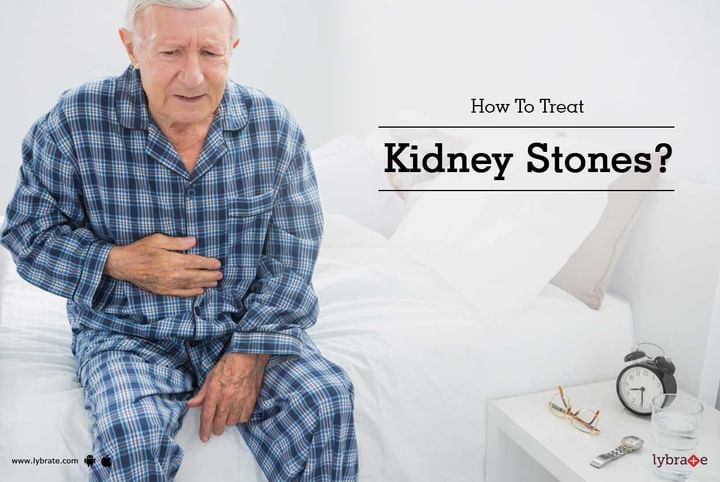Get the App
For Doctors
Login/Sign-up
Last Updated: Oct 23, 2019
BookMark
Report
How To Treat Kidney Stones?
Treatment for Kidney stones varies depending on the size and type of the stone or the symptoms caused by it. In case of small stones, medication and simple changes in lifestyle can be enough to treat it, but surgeries and extensive treatments are required if symptoms are severe. Following are treatment options for kidney stones:
- Small stones with minimal symptoms: Drinking water: Drinking around 3 litres of water a day will regulate your urinary system and can effectively eliminate small stones. Unless your doctor advices otherwise, drinking ample amount of fluids, usually water, is one of the commonest way to get rid of small kidney stones.
- Pain relievers: There might be a considerable amount of pain and discomfort associated with passing the stone through urine. Your doctor may recommend pain killers like Ibuprofen, Naproxen sodium or acetaminophen.
- Medical therapy: In order to eliminate the kidney stone, your doctor may administer medical therapy. Medication like alpha blocker helps in passing the kidney stone with least pain and more quickly. It relaxes the muscles in the ureter and makes the process relatively easy.
Large stones with severe symptoms:
- Extracorporeal Lithotripsy (ESWL): ESWL uses the help of sound waves to create vibrations which breaks the stones in smaller pieces. This procedure takes about an hour and can cause mild pain and discomfort. Your doctor may administer sedatives to reduce your sensitivity. More than one sessions of ESWL may be required depending upon the response. ESWL has side effects like blood in urine or bruising in the abdomen.
- Surgical removal of kidney stones: Surgical removal of kidney stones is done with the help of a procedure called percutaneous nephrolithotomy (PCNL). It uses small telescopes and other instruments which are inserted in your back through a small incision. It is generally done in case of large stones and when ESWL fails.
- Ureterorenoscopy (URS): A thin illuminated tube called ureteroscope is used to remove a stones in the ureter (a tube leading from kidney to the urinary bladder). The ureteroscope is equipped with a tiny camera which determines the location of the stone which is then broken into pieces with the help of other instruments. It may require general or regional anesthesia.
- Retrograde Intrarenal Surgery (RIRS): In this procedure a flexible endoscope is passed through the urethra into the ureter and the kidney. The stone is localised and is fragmented into small pieces with the help of laser. Fragments are then removed through the urethra. Usually a stent is placed after the surgery which is removed after a couple of weeks. If you wish to discuss about any specific problem, you can consult a Urologist.



+1.svg)
